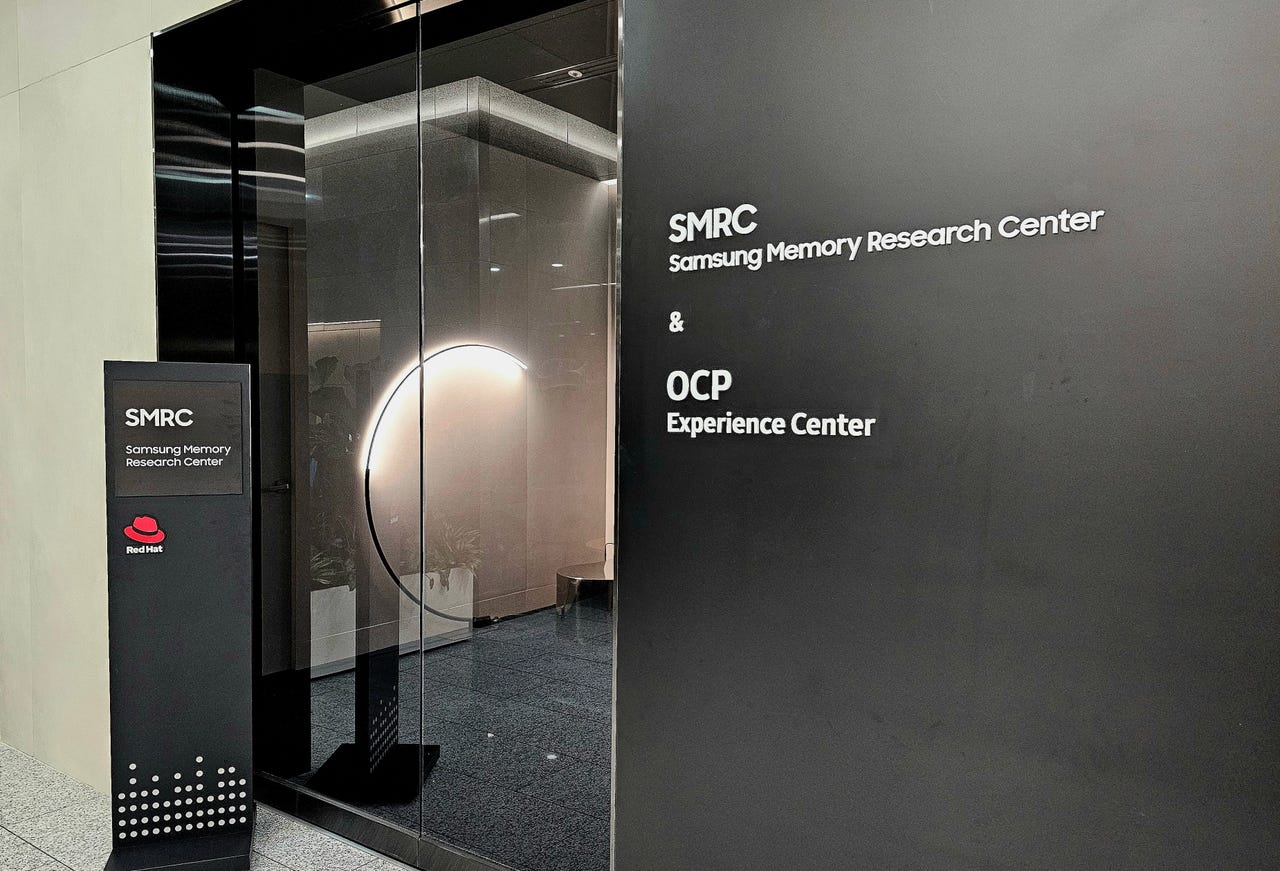
































Image: Samsung
Samsung said on Wednesday that it has verified the use of Compute Express Link (CXL) memory operation in a real user environment with open-source software provider Red Hat.
CXL is a unified interface standard, with the relevant consortium being formed in 2019 that continues to update the standard, which connects various processors and memory devices through a PCIe interface at lower latency and higher bandwidth than before. This allows existing data centers to improve speed, latency, and scalability at low cost.
Such demand has increased from the exponential growth of data throughput and memory requirements from fields such as generative AI, autonomous driving, and in-memory databases, according to Samsung.
Also: New Samsung Galaxy S24 leaks reveal exact release date and much more
The South Korean tech giant, the world's largest memory chipmaker, said it optimized its CXL memory for Red Hat Enterprise Linux 9.3, or RHEL 9.3, and verified memory recognition, read and write operations in Red Hat's KVM and Podman environments. This will allow data center customers to use Samsung's CXL memory without having to make additional adjustments to their existing hardware, the company said.
Samsung and Red Hat began their collaboration on CXL with a MOU in May of last year. "Since Red Hat is the leader in software platforms, it only made sense that we partner with them to test the interoperability of our memory solutions with their OS, VM, and container," Yongcheol Bae, Executive Vice President and Head of Memory Product Planning at Samsung, told in an interview, adding that it also began working with Vmware for similar reasons.
With the latest verification, Samsung becomes the first in the industry to offer CXL module, open-source software, and CXL DRAM supporting CXL 2.0, Bae said. Samsung and Red Hat were also working on flexible data placement and automotive as well as other projects for the ultimate goal of fostering a robust ecosystem for CXL Memory.
Also: Red Hat goes to the edge
Samsung and Red Hat plan to offer customer support for CXL memory through its Samsung Memory Research Center, formed in 2022, which is developing CXL open-source and reference models. The pair's partnership covers a range of storage and memory products, including NVMe SSDs, CXL memory, computational memory/storage, and fabrics. They are currently working on RHEL 9.3 CXL Memory Enabling Guide to help customers apply Samsung's CXL memory to their systems.
"Our partners have been telling us that the benefits from bringing all of the various IT solution players, from components and servers to software, onto the same platform are tremendous. Over the years, we're seeing that industry-wide collaboration is becoming more important to address the ever-changing needs in the market," the Samsung executive said.
"Today's data-intensive applications demand significantly higher memory bandwidth and density, which leads to the necessity for new computer architectures. We're still in the pathfinding stage for several memory solutions and CXL is one of them. As part of the efforts to meet market needs for higher performance and less TCO, we believe CXL as a new memory interface can be one of the solutions to these changes."
According to market research firm Yole Group, the CXL market is only valued at approximately$14 million currently but this is expected to grow to$16 billion in 2028, spurred by the rollout of CXL 2.0 in late 2024.
 Tags quentes :
Negócio
Tags quentes :
Negócio